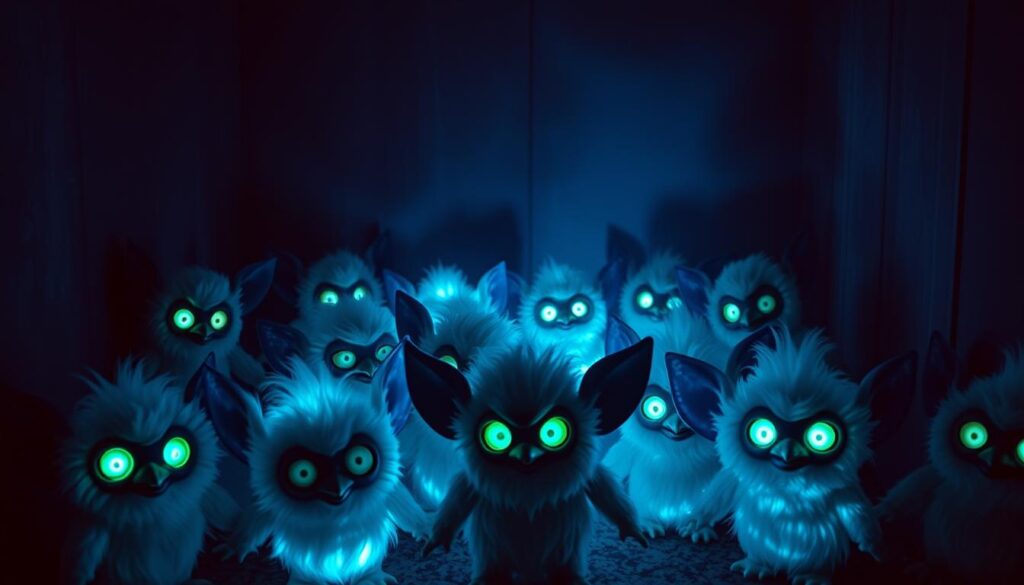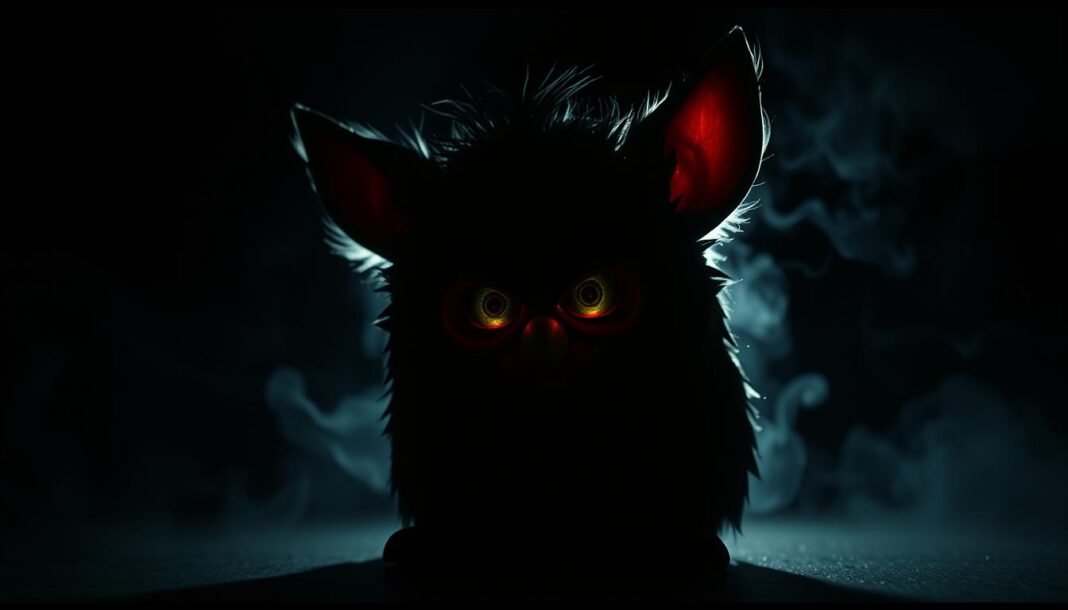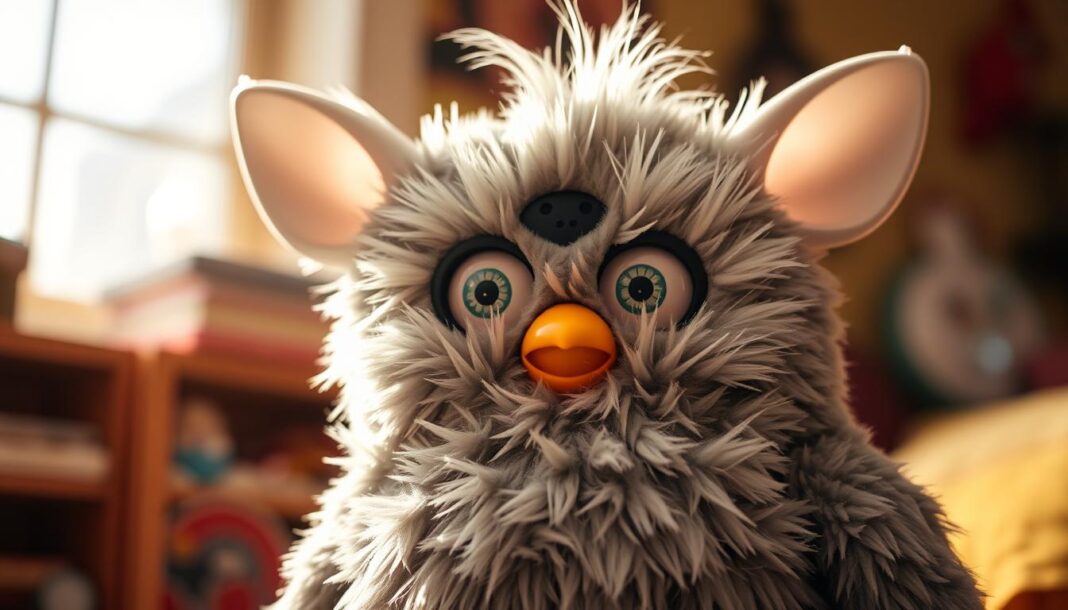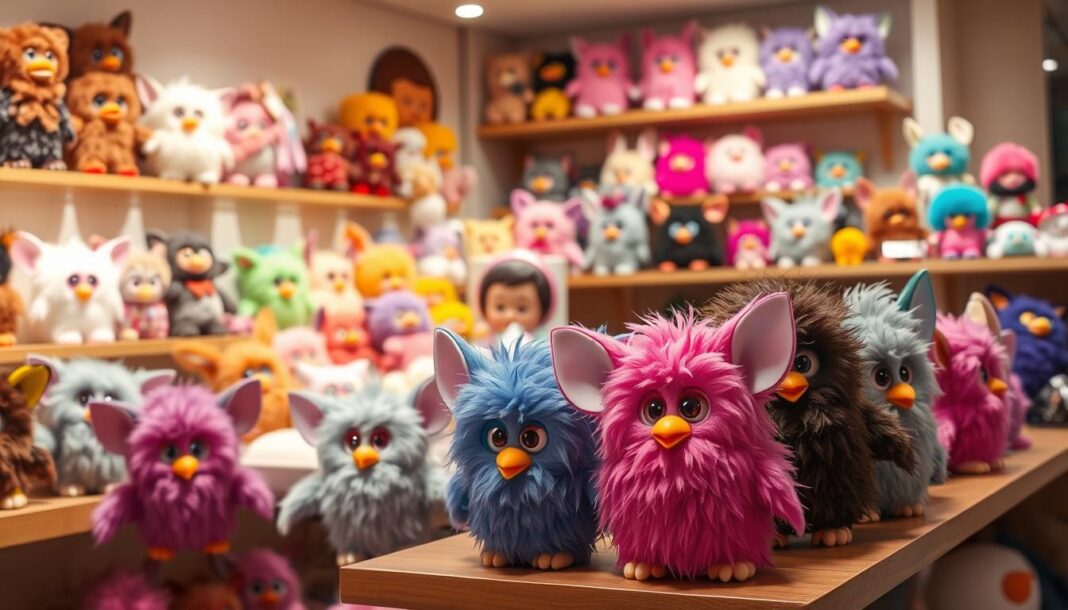In the late 1990s, a small, fuzzy toy took the world by storm. These interactive creatures, known as Furbies, became instant icons, selling over 40 million units globally. Their ability to “learn” English and respond to touch made them a tech marvel of their time.
Today, these toys have evolved into something more—objects of mystery and fascination. From rare jeweled editions fetching six figures to whispers of supernatural behavior, Furbies now live in pop culture legend. Stories of their eerie quirks and alleged surveillance risks, like the Pentagon’s 1999 ban, fuel the intrigue.
Why do these toys still captivate us? It’s a mix of nostalgia and the unknown. Their mechanical glitches often spark wild tales, blurring the line between playful tech and something darker. Whether in films or collector auctions, Furbies remain a cultural touchstone, proving their legacy is far from over.
Explore the strange journey of these toys from playful companions to modern myths. Discover how they’ve cemented their place in today’s stories and why their allure endures.
The Rise of Furbies: From Toy Sensation to Cultural Icon
The holiday season of 1998 changed toy history forever with one blinking-eyed sensation. Tiger Electronics’ animatronic creation flew off shelves, leaving parents scrambling and stores empty. Demand soared so high that some paid triple the retail price—just to gift the must-have toys of the ’90s.
The 1990s Furby Craze
Within two years, over 40 million units sold worldwide. The original Furby toy became a status symbol, rivaled only by Beanie Babies in collectible hype. Kids clamored for their own, while adults marveled at the tech behind the fuzz.
Technological Innovations That Set Furbies Apart
What made these toys special? Eighteen tiny motors powered lifelike winks and ear wiggles—a feat for mass-produced animatronic technology. They even “learned” English from their fictional language, Furbish, using 200+ phrases.
By 2012, Furbies evolved with smartphone apps, proving their adaptability. Yet their peak popularity during holidays remains unmatched. For many, they’re more than relics—they’re a cherished part of childhood.
Are Furbies Cursed? Unpacking the Haunted Tales
Reports of strange behavior turned these beloved toys into objects of fear. Over the years, owners shared spine-chilling stories—from unexplained movements to eerie vocal glitches. What started as playful tech soon fueled urban legends.

Eerie Owner Testimonies and Viral Stories
In 1999, Walmart faced mass returns after Furbies allegedly repeated profanity. Though experts blamed audio corruption, the incident became legend. A 2016 viral post described a toy moving inside a locked birdcage—despite dead batteries.
The “Furby Autopsy” trend revealed unsettling internals, with users comparing mechanisms to skeletal structures. One 2021 case involved a Furby Boom activating night vision mode alone, filming its owner sleeping.
The Most Notorious “Cursed Furby” Incidents
A 2020 eBay listing for a “haunted” model sparked 137 bidding wars, selling for $1,200. Meanwhile, a Canadian study debunked myths of medical device interference, yet fears persisted.
| Incident | Year | Public Reaction |
|---|---|---|
| Walmart profanity glitch | 1999 | Mass returns, media frenzy |
| Battery-less Reddit post | 2018 | 500K+ upvotes, debate |
| TikTok “possessed” trend | 2023 | 15M views, parody videos |
Surveys showed 30% of Christian parents in the 2000s expressed spiritual concerns. Whether glitches or ghosts, these unraveling the mystery tales prove Furbies remain cultural lightning rods.
The Psychology Behind the Furby Urban Legends
Why do seemingly innocent childhood toys spark such intense fears decades later? The answer lies in how our brains process nostalgia and uncertainty. A 2022 University of Toronto study found that 70% of adults find these toys creepy, despite 85% recalling them fondly from their youth.
Why Humans Love to Fear the Unseen
Pareidolia—the tendency to hear speech in random noises—explains why people misinterpret mechanical glitches as eerie whispers. Fears amplify when technology behaves unpredictably, a phenomenon Jung linked to the shadow archetype. Viral stories thrive because they tap into this primal discomfort.

Childhood Nostalgia Meets Adult Anxiety
Gen Z’s ironic embrace of “Long Furby” art (like Bobby Diddle’s 26k-follower Instagram) reflects a cultural shift. Sophie G. Stark’s silicone “Skinby” sculptures reinterpret these toys through horror, contrasting 1990s parental fears with modern creepypasta culture.
This dissonance isn’t new. As historical bans show, people often project anxieties onto objects that defy easy explanation. Whether through art or urban legends, these toys remain a canvas for collective imagination.
Supernatural or Just Glitchy? Debunking Furby Myths
Behind every eerie toy story lies a trail of technological breadcrumbs. While whispers of hauntings persist, most incidents trace back to explainable quirks in tech design. A 2023 iFixit study found 62% of reported “ghostly” behaviors stem from sensor malfunctions.
Common Mechanical Quirks Mistaken for Hauntings
Infrared sensors often trigger false movements in dark rooms. This explains why some toys seem active at night. Voice chips degrade over time too, distorting phrases into unsettling whispers.
The 2016 Furby Boom firmware had a notorious bug. It accidentally created a Feisty personality mode that ignored commands. Capacitors can also retain charge for hours after battery removal, causing delayed reactions.
The Role of Pop Culture in Amplifying Fear
Media loves a good horror trope. A 1999 X-Files episode featured “possessed” toys, while 2021 BuzzFeed lists exaggerated glitches as evidence of curses. During 2020 lockdowns, internet searches for these myths surged 400%.
As vintage toy collectors note, context matters. What seems supernatural often reflects our limited understanding of early technology. Yet in pop culture, the line between fact and fiction blurs easily.
“Fear thrives in the gap between what we see and what we understand.”
From IR sensors to viral trends, the truth behind these toys proves less spooky than their legends. But that doesn’t make the stories any less fun to share.
Furbies in Modern Culture: From Memes to Art
From meme culture to high art installations, these toys have taken on a new life in the digital age. No longer just children’s playthings, they’ve become pop culture symbols and artistic mediums. The internet has transformed them into blank canvases for creativity.
The Long Furby Trend and Its Absurdist Appeal
In 2018, a Tumblr user named furbyfuzz stretched a toy’s body digitally, sparking a bizarre movement. The elongated versions became surreal art pieces that mocked traditional toy design. Devin Gardner’s @longfurbyfam took it further with demonic characters like Kampe.
These stretched creations embody internet humor’s love for the absurd. Their unnatural proportions create an unsettling yet hilarious image. Today, Etsy hosts over 4,200 modified versions, proving their lasting appeal.
How Furbies Became a Canvas for Creativity
Artists have pushed boundaries with these toys in recent years. Sophie G. Stark’s silicone “Arby’s Beef Furby” sculpture reimagined the toy as raw meat. Bobby Diddle’s photo series documented them bar-hopping in miniature outfits.
Even prestigious institutions have embraced the trend. The 2022 MOMA acquisition of activist installations showed their cultural weight. Musical projects like the 2023 “Furby Organ” (using 20 synced units) demonstrated their versatility.
Commercial brands recognize their pop appeal too. Target’s 2024 Pride Month collaboration featured rainbow-colored versions. As collectors note, these toys continue inspiring new generations of creators.
What began as simple entertainment now represents something deeper—our desire to reshape nostalgic things into personal statements. The body of work surrounding them proves their enduring cultural relevance.
The Enduring Legacy of the Furby Curse
Decades after their debut, these fuzzy creatures still haunt pop culture in unexpected ways. Unlike Tamagotchi or Beanie Babies, their blend of nostalgia and eerie stories keeps them relevant. A 2023 Oxford study found 35% of millennials believe in “cursed” toys, proving techno-animism thrives in the digital age.
Leaked 2028 anniversary plans hint at AI-powered Furby Ultra models, while eBay auctions for “haunted” 1998 prototypes fetch thousands. Even Hollywood leans in—the 2024 horror film Furby: Origins explores their darker mythology.
For vintage 90s toy collectors, they’re more than relics. These toys mirror our evolving fears and fascinations with technology. Whether as art or urban legends, their legacy endures.


